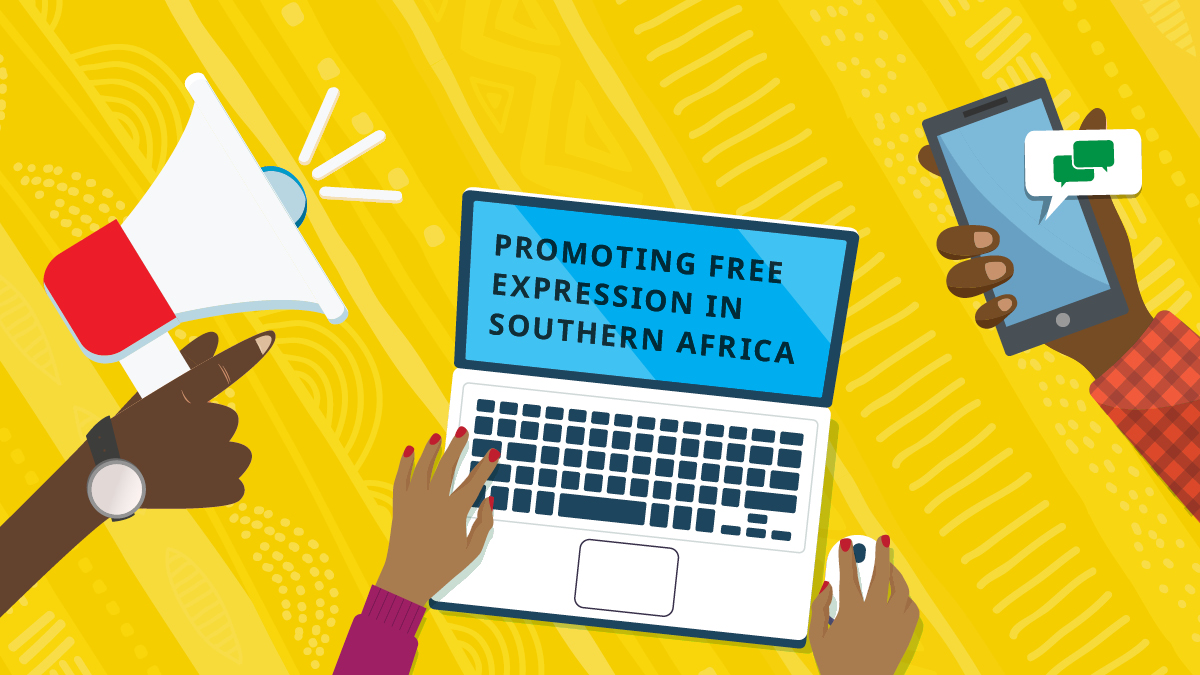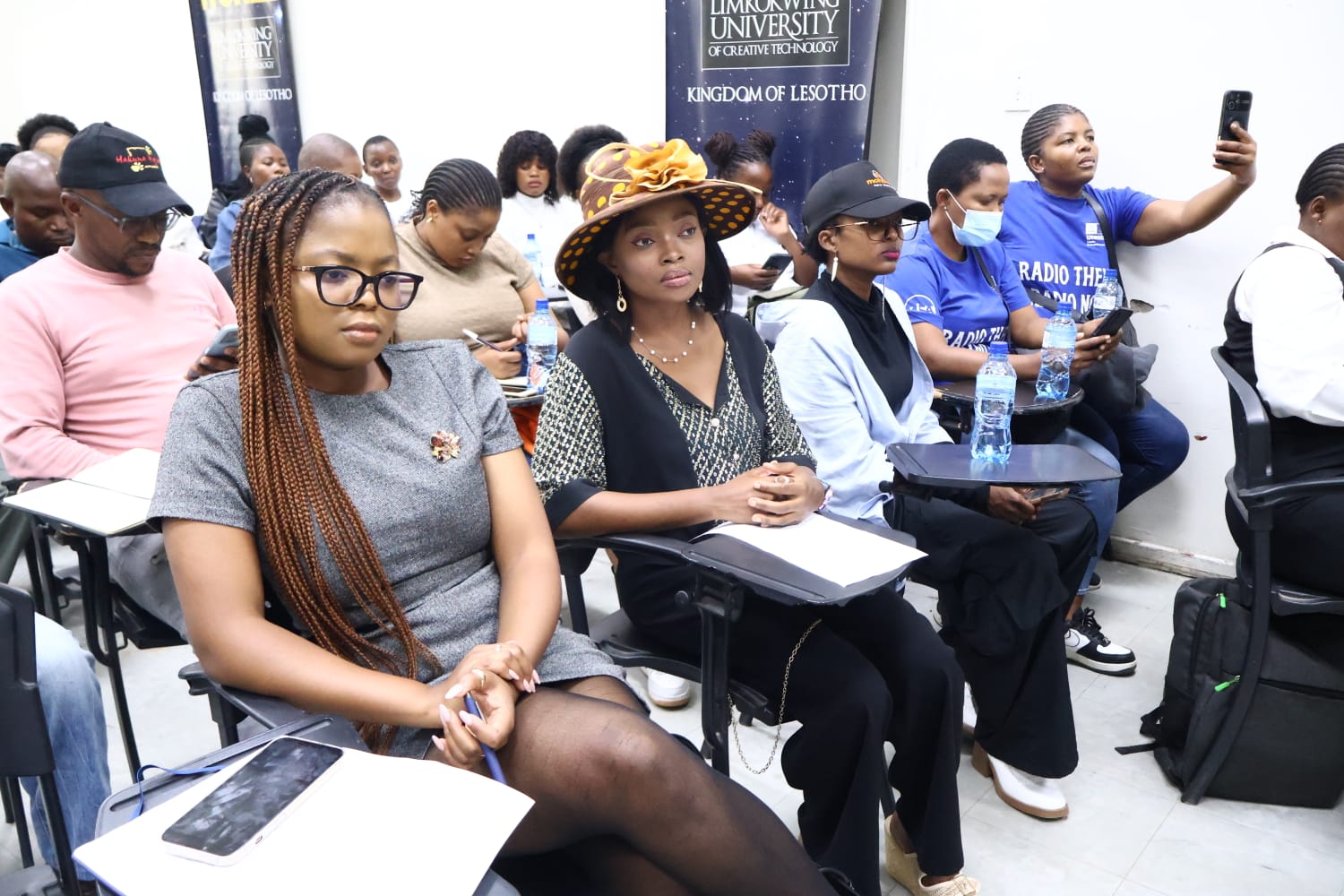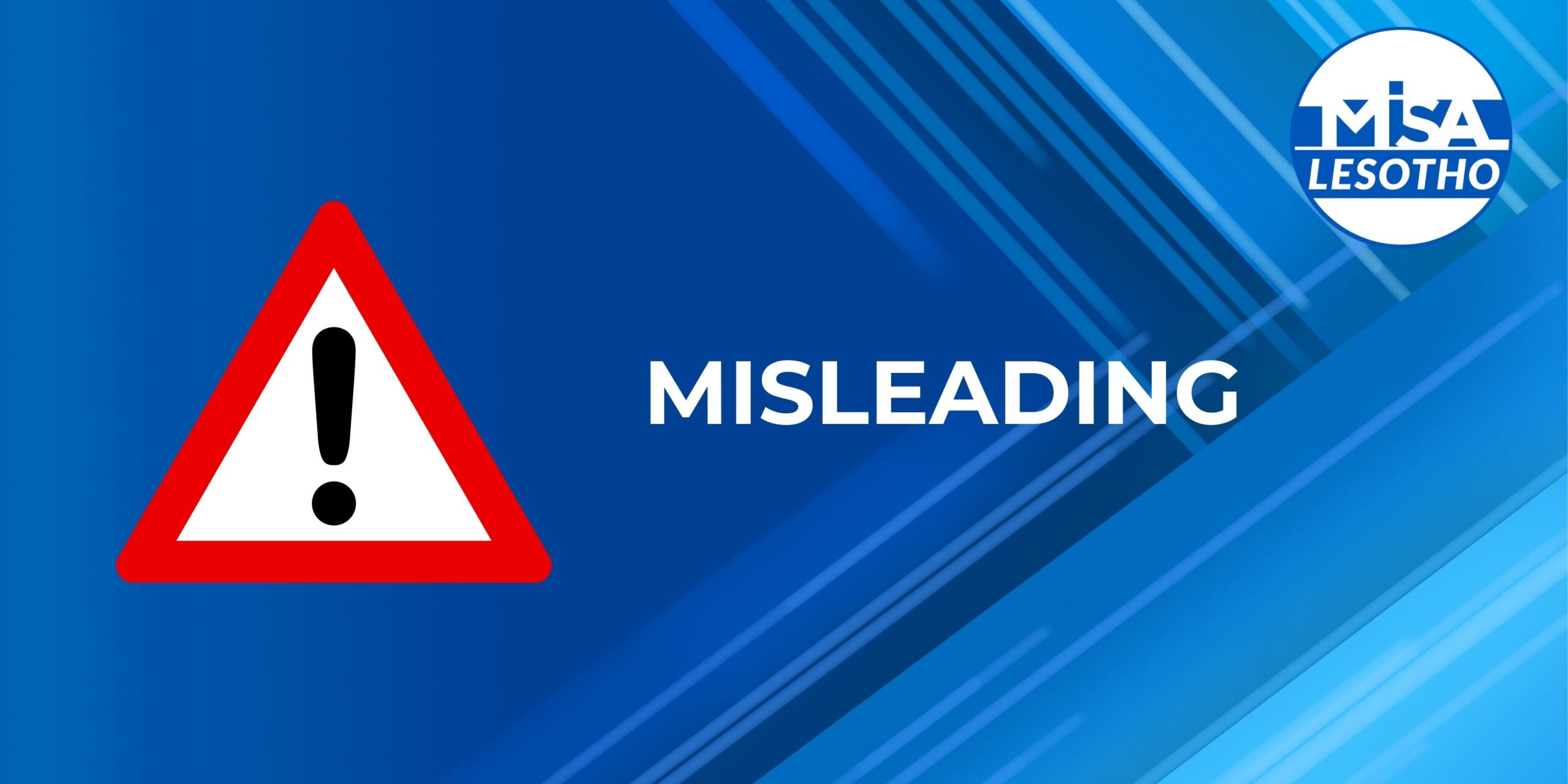MISA Lesotho publishes this statement with grave concern as we celebrate, yet again, the
International Day for Universal Access to Information (IDUAI) without the access to
information law in Lesotho, and under disturbing political developments threatening press
freedom and access to information by the public.
In a country that takes pride of being democratic since early 1990s, the citizens remain without a legitimate right of access to information, and it is increasingly becoming difficult for media practitioners as well as the general public to obtain official information.
It is a fundamental human right for citizens to ask for, and receive information held by public
bodies and organisations. This is guaranteed by Article 19 of the Universal Declaration of
Human Rights, Article 9 of African Charter on Human and Peoples Rights and Article 4 of
Declaration of Principles on Freedom of Expression in Africa.
Lesotho has acceded to all the documents abovementioned, but little has been done to
domesticate these agreements into the local legal framework. About IDUAI Since the inauguration of IDUAI in 2016, the world has celebrated this day in line with UNESCO’s resolution of November 17, 2015, declaring September 28 of every year as the
International Day for Universal Access to Information.
IDUAI has particular relevance to the United Nation’s Sustainable Development Goals(SDGs), specifically with the SDG target 16.10, which calls for states to ensure public access to information and protection of fundamental freedoms. IDUAI is celebrated to raise awareness about freedom of information, promotion of open access and the importance of adopting right to information laws, among others.
As we celebrate this year’s edition of IDUAI, MISA Lesotho observes with concern that, contrary to adopting model laws that promote free information, Lesotho remains with archaic and outmoded laws that impede free access to information.
In the recent past, MISA Lesotho has uncovered the following pieces of legislation, among
others, that are inimical to access to information by the public and press freedom:
• Constitution of Lesotho (Section 14, 1993)
• Sedition Proclamation No.44 (1938)
• Official Secrets Act (1967)
• Printing and Publications Act (1967)
• Internal Security Act (1984)
• Parliamentary Powers and Privileges Act (1994)
• Criminal Procedure and Evidence Act (1981)
• High Court Act (1978)
• Standing Orders of Parliament No.90 (2006)
Disturbing Political Developments
The recent unilateral tabling of the Computer Crime and Cybersecurity Bill of 2021 before
parliament, as well as gazettement of the Communications (Subscriber Identity Module and
Mobile Device Registration) Regulations of 2021 respectively, by the Minister of Communications, Science and Technology without stakeholder consultations in what seems a spirited fight by the government against access to information by the public and press freedom in Lesotho. In their current content, both the bill and regulations are an addition of salt to a wound.
It must shock the world if the parliament of Lesotho, today, will pass the controversial Computer Crime and Cybersecurity Bill of 2021, which the parliamentary portfolio committee on information reasonably recommended its withdrawal from the National Assembly a week ago, to allow for the Minister to revisit the vague Bill and conduct
stakeholder consultative review of it. MISA Lesotho learns with shock that, regardless of the rational recommendation of the committee and an ultimate resolution by the National Assembly last week to dismiss the Bill, it has resurfaced for further parliament deliberations scheduled under today’s agenda.
In Lesotho, a number of governments organisations hamper access to information by labelling certain information and government documents as ‘confidential’ or ‘secret’. Access to information in Lesotho remains a hard-fought battle by free expression activists and media freedom fighters.
The Role of MISA Lesotho dedicates most of its advocacy work towards ensuring a viable working environment for media practitioners as far as access to information is concerned. This is against a background of archaic laws and legal instruments that are detrimental to the enjoyment of this right by the media, as well as the general public.
In an effort to realise a viable platform for unhindered access to information, MISA Lesotho
advocated for an access to information law which culminated in the Access and Receipt of
Information Bill of 2000. However, 20 years later, the bill is yet to be enacted into law by parliament. This is in spite of a drastic political change after the 2012 elections, that saw the country move from a single party state to a multi-party coalition government.
With the next National Assembly elections slated for September 2022, it is of paramount
importance for the government to conduct a stakeholder review of the Access and Receipt of
Information Bill of 2000, and for the parliament to enact it into fully fledged law prior to the
polls.
MISA Lesotho recommits to engaging into a robust advocacy strategy to trigger the government to move speedily towards formulating the Access to Information Policy and for parliament to promulgate the Access to and Receipt of Information Act ahead of the elections. Once formulated and promulgated respectively, the policy and Act of parliament will
facilitate access to information by media practitioners before, during and after the next year
elections. This will ensure transparency of the elections – accessing political party
manifestoes ahead of elections for interpretation to the voting populace.
Enactment of the Access and Receipt of Information Bill of 2000, as well as formulation accompanying policy, will promote accountability by politicians who aspire to occupy public office after elections by empowering the media and citizens to demand accountability. To date, the country has made strides towards improving the overall legal situation through national reforms – a multifaceted and multistakeholder initiative to overhaul the country’s
legal framework, spanning constitutional, parliamentary, security, public service sector,
judicial, economic and media reforms.
MISA Lesotho learns that the National Reforms Authority (NRA) will discuss adoption of
Constitutional amendments this week, that include access to information and media freedom
in Lesotho, among others.









